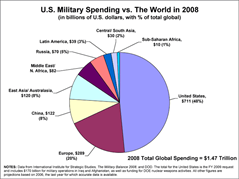The ill-advised launching of a few barrages of cruise missiles at Syria, which was the White House’s fervent desire back in August could have cost as much as five billion dollars or so by the time it was all over, an act of war carried out just to establish the “credibility” of the White House. Would it have been money well spent to kill a few hundred Syrians?
The Navy meanwhile keeps building multi-billion dollar aircraft carriers even though they are highly vulnerable to much cheaper missiles and although it already has eleven of them while the Air Force is getting the problem plagued and cost overrun prone F-35 fighter at $100 million a pop in a $857 billion program even though the aircraft is demonstrably not needed for national defense.
Government employees swear an oath to uphold the constitution of the United States but they quickly find themselves in a situation where they will be rewarded only if they are completely loyal to the internal dynamics of the institution that they find themselves working for. Which means they are frequently competing for a bigger slice of the budget, more perks and pay, and only secondarily responding to the genuine interests and needs of the American people.
Note how the Pentagon has repeatedly been sending the signal that war with Iran and/or Syria would be a huge mistake, but behind the scenes the Air Force has been delivering a somewhat different message to the White House. Sending waves of bombers to hammer Iran would validate the existence of the Air Force, which would do the trick from 20,000 feet. Why do the boys in blue want to bomb Iran? Because they didn’t have enough involvement and therefore budget growth from what went on in Afghanistan and Iraq.
It’s all about money and the bureaucratic connections that make parts of the government appear relevant and grow. Do we even need an Air Force with its bomber fleets that have no actual defensive mission and are only good for attacking other countries? Good question. What are the actual threats and who exactly are they protecting us against?
I recall back in 1992 how, when the Cold War ended, organizations like CIA and the FBI were desperate to maintain their relevancy. There was talk of more involvement in issues like counter-narcotics and even international patent and copyright infringement before everyone discovered combating global terrorism, which quickly became the principal focus of the intelligence and law enforcement agencies.
Has the terrorism threat been hyped by many in the government to create fear and to generate more resources and manpower? Of course it has and some even suspect that the threat has been largely invented. It is sometimes noted that more Americans are killed annually by falling furniture than by terrorist attacks yet the White House spends hundreds of billions of dollars to counter a threat that would be considered minor but for the government itself pushing to find a solution to a problem that it almost certainly helped create.
Are we Americans better off because we constantly invest in more carrier battle groups and squadrons of new fighter planes that make us militarily superior to the rest of the world? Does the chaotic Department of Homeland Security actually do anything that makes America safer? And at what cost? Why is Washington negotiating to stay in Afghanistan? What is the national interest that applies, and why should we be bombing Syria and Iran? Just because there are vested interests that want to maintain huge bureaucracies that will perpetuate all these policies does not transform them into a vital national interest for most Americans.
It is an ultimate irony that institutions like the Post Office that actually provide a necessary service for most Americans are starved for funds while National Security Agency seems to have plenty of cash to build and operate its vast new spy center in Utah. A spy center that will collect information on the American people. Clearly the priorities of government are skewed and it is not just in congress.
This is an abridged version of an article originally appearing on Antiwar.com, reprinted with permission.



